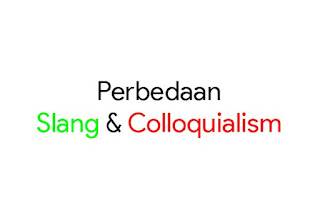What is normal blood pressure?
Blood pressure is a measure of how hard your heart has to work to pump blood through your arteries. It is usually expressed as two numbers: systolic and diastolic. Systolic blood pressure is the pressure when your heart contracts and pushes blood out. Diastolic blood pressure is the pressure when your heart relaxes and fills with blood.
Normal blood pressure for an adult is less than 120/80 mm Hg, according to the American College of Cardiology and the American Heart Association. However, normal blood pressure can vary depending on your age, sex, health condition, and other factors. For example, children and teenagers typically have a lower blood pressure than adults. Also, some people may have a higher or lower risk of cardiovascular disease depending on their blood pressure level.
Why is it important to know your blood pressure?
High blood pressure, also called hypertension, is a common and serious health problem that affects about one in three adults in the U.S. High blood pressure can damage your arteries, heart, brain, kidneys, and eyes over time. It can also increase your risk of heart attack, stroke, heart failure, kidney failure, and vision loss.
Low blood pressure, also called hypotension, can cause dizziness, fainting, nausea, fatigue, and blurred vision. It can also indicate an underlying problem such as dehydration, bleeding, infection, or heart failure.
Knowing your blood pressure can help you prevent or treat these conditions and improve your overall health. You can check your blood pressure at home with a digital monitor or at a doctor's office or pharmacy. You should check your blood pressure regularly and keep track of your readings.
How can you lower or maintain your blood pressure?
If you have high blood pressure or are at risk of developing it, you can take steps to lower or maintain your blood pressure. Some of these steps include:
- Eating a healthy diet that is low in salt, saturated fat, and added sugars. The DASH diet (Dietary Approaches to Stop Hypertension) is one example of a diet that can help lower blood pressure .
- Getting regular physical activity that makes your heart beat faster. Aim for at least 150 minutes of moderate-intensity aerobic exercise per week .
- Losing weight if you are overweight or obese. Even a small weight loss can make a difference in your blood pressure .
- Limiting alcohol intake to no more than one drink per day for women or two drinks per day for men .
- Quitting smoking if you smoke. Smoking can raise your blood pressure and damage your arteries.
- Managing stress in healthy ways such as meditation, yoga, breathing exercises, or hobbies .
- Taking medication as prescribed by your doctor if lifestyle changes are not enough to lower your blood pressure. Different types of medications can help lower blood pressure by relaxing your blood vessels, reducing fluid retention, or slowing down your heart rate.
If you have low blood pressure or experience symptoms of low blood pressure, you should talk to your doctor about the possible causes and treatments. Some of these treatments may include:
- Drinking more fluids to prevent dehydration.
- Eating small and frequent meals to avoid drops in blood pressure after eating.
- Wearing compression stockings improves blood flow in your legs.
- Changing positions slowly to avoid dizziness or fainting when standing up.
- Taking medication as prescribed by your doctor if you have a condition that causes low blood pressure such as heart failure or thyroid problems.
Summary
Blood pressure is a vital sign that reflects how hard your heart has to work to pump blood through your arteries. Normal blood pressure for an adult is less than 120/80 mm Hg, but it can vary depending on many factors. High or low blood pressure can cause serious health problems if left untreated. You can check your blood pressure at home or in a healthcare setting and take steps to lower or maintain it with lifestyle changes and medication if needed.

Comments
Post a Comment
Bila ada yang ingin ditanyakan terkait postingan ini, silahkan bertanya melalui kolom komentar yang sudah disediakan.
Terimakasih.